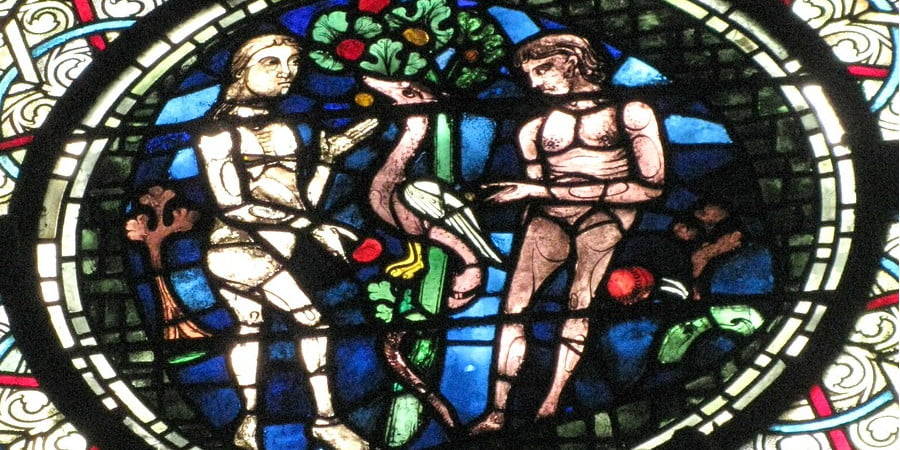The marriage equality debate is underway and I find that the no case is being most zealously prosecuted by the evangelical wing of the church. This also happens to be the part of the church I belong to. Sometimes the ways of this group of believers thrills me, sometimes inspires me, sometimes infuriates me and and sometimes disappoints me (and I no doubt do the same to some of my evangelical colleagues) . On the question of marriage equality I find myself frustrated and disappointed. I advocate for a yes vote, when most of my evangelical colleagues are saying no. I’ve tried to listen carefully and respectfully to the arguments, but remain convinced that evangelicals will come out on the wrong side of history on this one. In this rather lengthy post I lay out my reasoning.
The underlying issue
Evangelicals and other conservative Christian groups are prosecuting the no case with an energy that exceeds anything else in recent memory. We have taken our stand on refugees, homelessness and poverty, but the emotional energy being thrown into opposing marriage equality seems to be at another level of intensity. I don’t mean to suggest that conservatives have neglected those issues. I have stood shoulder to shoulder with my conservative brothers and sisters protesting aid cuts and advocating for refugees. Nor do I think the all too hastily applied epithet of “homophobia” explains the opposition of my fellow evangelicals. My Facebook and blog threads certainly suggest that there are some in our faith communities who are filled with fear and hatred of LGBTIQ people, but the church leaders I know who are opposed to marriage equality are people for whom I have respect, who are generous and gracious and who genuinely want to extend love to their LGBTIQ neighbours.
What I do sense is a concern at the ways our society is becoming increasingly liberal. It is the nature of conservatism to make changes slowly and incrementally and to many of my evangelical friends it seems we are rushing into changes to our understanding of sexuality and our social institution of marriage without being attentive to the possible negative outcomes. Yet I find the arguments they proffer rather brittle.
The nature of marriage
According to proponents of the no case, marriage is more than a relationship between two individuals; it is a relationship that provides the context within which children are born and raised. As such, they argue that it depends upon the biological complementarity of husband and wife. To recognise same-sex marriages would fundamentally alter the meaning of marriage. The Sydney Anglican booklet “What God Has Joined Together” claimed that “In order for same-sex couples to share in marriage, the definition must be changed to remove “founding a family” from the essence of marriage and focus the definition on the rights of a couple.”
The Marriage Act defines marriage as “the union of a man and a woman to the exclusion of all others, voluntarily entered into for life”. In neither the act nor the guidelines for celebrants provided by the Attorney General’s Department is there any reference to family formation. Likewise, when marriages are celebrated the focus is one the couple and not on family formation. The majority of weddings performed in Australia are now conducted by civil celebrants. I did a Google search for “marriage celebrants sample ceremony” and looked at the first five results. Not one ceremony described a marriage with reference to children. Rather the focus was exclusively upon the relationship shared between the couple.
It is somewhat ironic that the definition of marriage in Australian law and popular expression is precisely that which the opponents of marriage equality deem so dangerous! It is not the proponents of marriage equality who are asking to change the definition of marriage. The radical redefining of marriage is in fact being proposed by the opponents of marriage equality.
Removing gender from marriage?
The coalition for marriage website suggests that marriage equality will remove gender from marriage, and then invokes the Orwellian spectre of our children being taught that there is no such thing as gender. I find this argument baffling. A marriage between two men or two women will not eliminate gender. It will be a marriage between two people of the same gender.
The suggestion marriage equality will lead to the removal of gender from our schools is likewise problematic.The proposed changes to marriage and school sex education are both outworkings of a shift in the understanding of sexuality that is occuring in our society, so to suggest marriage equality will lead to our kids being taught crazy gender ideas is misleading. As is the notion that anyone is proposing the elimination of gender. The call to recognise that some human beings are transgender and others experience gender in a fluid way is not to argue for no gender, but for an expanded concept of gender that ceases excluding and marginalising those who don’t fit a binary model.
Impacts on children
Opponents of marriage equality frequently argue that same-sex marriages will have detrimental outcomes for children. They point to the right of children to know their biological parents and the need for children to have positive male and female role models.
The well-being of children should always be an issue of concern, but it is not an argument that pertains to same-sex marriage. To raise it here makes the assumption that marriage confers the right to have children. Indeed, the Sydney Anglican booklet “What God Has Joined Together” strongly implies this when it says that “while most same-sex couples aren’t seeking marriage so that they can found a family, there will be some same-sex couples who’ll want children if we make the change” (italics mine) and that “Recognising same-sex relationships as ‘marriage’ legitimates the right of all same-sex couples to equal access to assisted reproductive technology.”
The reality is that more than one third of Australian children are born out of wedlock, that lesbian and gay couples already have access to assisted reproductive technology and that lesbian and gay couples already have children and raise families. The 2016 census counted 46,800 same-sex couples across Australia, split almost evenly between female same-sex couples (49%) and male (51%). One quarter of female same-sex couples and 4.5% of male same-sex couples had children.
Having said this, it is worthwhile noting that the overwhelming consensus of peer-reviewed studies into the welfare and well-being of children in same-sex headed households shows that children in those households do as well as children who grow up in other household types. A literature review conducted by the Australian Psychology Association in 2007 found that “the family studies literature indicates that it is family processes (such as the quality of parenting and relationships within the family) that contribute to determining children’s well- being and ‘outcomes’, rather than family structures, per se, such as the number, gender, sexuality and co-habitation status of parents. The research indicates that parenting practices and children’s outcomes in families parented by lesbian and gay parents are likely to be at least as favourable as those in families of heterosexual parents, despite the reality that considerable legal discrimination and inequity remain significant challenges for these families.”. This conclusion was confirmed by a 2013 literature review by the Australian Institute of family studies.
Impacts on Freedom of Religion
Opponents of marriage equality argue that it will diminish religious freedoms. Claims have been made that Christian ministers will be at risk of prosecution if they articulate the opinion that same-sex partnerships are outside the will of God; conservative religious schools may be forced to teach that homosexual partnerships are equal to heterosexual; that Christian bakers will be forced to bake cakes for gay weddings.
These claims are reinforced by pointing to the experiences of countries that have legalised same-sex marriage. Unfortunately, there isa lot of unwarranted alarm occurring here.
In 2015 the Australian Catholic Bishops conference released a booklet entitled “Don’t Mess with Marriage”. The booklet cited a number of examples of attacks upon freedom of religion. The first example stated that “The City of Coeur d’Alene, Idaho, ordered Christian ministers to perform same-sex weddings under pain of 180 days’ imprisonment for each day the ceremony is not performed and fines of $1000 per day”. This is a complete misrepresentation of what occurred. The ministers in question were a couple who ran a wedding chapel called “The Hitching Post” in which they advertised that they performed Christian ceremonies, civil ceremonies, and ceremonies for other religious traditions. When the city council passed an ordinance prohibiting discrimination on the grounds of sexual orientation it specifically exempted “Religious corporations, associations, educational institutions, or societies.” (see http://opencda.com/wp-content/uploads/2013/06/LGBT-Ordinance.pdf.) At no point did the city council threaten or initiate legal action, but rather they recognised “the Hitching Post” as an exempt religious organisation. It appears that the owners of the Hitching Post misread the ordinance, believed they would not be exempt because they were a business, made noise about it that received national media coverage, and then sued the council for losses they experienced as a result of adverse publicity.
The second example that Don’t Mess With Marriage cites is that “Clergy in Holland, France, Spain, the US and Australia have been threatened with prosecution for ‘hate speech’ for upholding their faith tradition’s position on marriage; the City of Houston, Texas, has even subpoenaed pastors, compelling them to submit sermons to legal scrutiny when discussing sexuality.” I am not sure what specific instances the bishops had mind for Holland, France, Spain, the US and Australia, but the one specific example cited is again a misrepresentation. In 2004 the city of Houston passed a law banning businesses from discriminating on grounds of sexual orientation, gender identity, race, colour ethnicity, religion, disability, age, etc. Opponents of the ordinance gathered 50,000 signatures to demand a repeal motion. The city rejected their petition on the technical grounds that the signatures were not provided in the correct form, which led opponents to launch a suit against the city. As part of the case, the city issued subpoenas for “all speeches, presentations, or sermons related to HERO, the Petition, Mayor Annise Parker, homosexuality, or gender identity prepared by, delivered by, revised by or approved by you [i.e. those who were suing the city] or in your possession”. The city of Houston did not demand pastors submit their sermons on sexuality for scrutiny. Rather pastors who were part of a group that brought a suit against the city in which the legality of the signatures they had gathered was under dispute were asked to submit documents, including sermons, that would be pertinent in discerning whether proper processes were followed.
To be quite honest, I am finding that all too often when I look into the specifics of claims that freedom of religion is being violated the arguments appear overblown and exaggerated. In Australia, as in most western societies, antidiscrimination laws already prohibit discrimination against people on the grounds of their sexual orientation and gender identity. It is already illegal to incite hatred and violence against gay people; it is already illegal for businesses to discriminate in the provision of services; and it is already illegal to deny people employment on the grounds of their sexual orientation or relationship status. Religious bodies, including churches, welfare agencies, aged care services and religious schools, however, are usually exempt from parts of the antidiscrimination legislation. Businesses are not. If a gay couple wanted to hold a celebration marking their relationship, their anniversary, or the arrival of a child, it is already a violation of the antidiscrimination legislation for a bakery to refuse to bake the cake or for a caterer to provide them with catering on the grounds that they are homosexual.
Having said this, I expect that the next decade or two will see an increase in challenges to the exemptions to antidiscrimination law that apply to churches, Christian welfare services and Christian schools. This will be difficult and may well place new restrictions on religious freedom. These challenges will not however arise because of marriage equality, but due to shifting perceptions in the Australian community of what is acceptable treatment of human beings.
What’s really going on?
From my vantage point, it looks like evangelicals are publicly playing out our struggle to find our place in a post-Christendom Australia. Ever since the Australian constitution was passed (1901) Australia has officially been a secular State, but from the time of the British invasion until the mid twentieth century Christianity had a substantial role in Australia’s public life. It was widely accepted that Australia was a “Christian” nation that would pass “Christian” laws. This started breaking down in the 1950s and has accelerated to the point that Australia self identifies as a multi-faith, multi-values society united by a common commitment to cherish and respect each other’s freedom. Democracy protects people from the tyranny of the state, while liberalism protects people from the tyranny of the majority. We no longer look to the state to impose a uniform morality nor a uniform religion. Rather, responsibility for life choices devolves to the individual. Citizens are granted the freedom to live the lives they value and the responsibility to do so in ways that don’t impinge upon the freedom of others. The State is responsible to create the environment in which this can occur and to defend the freedoms of all citizens. This means I should expect to live in a community in which people hold values and construct lifestyles that are very different to mine. The problem for Christians and churches is that in terms of faith as a lived reality, we now find ourselves a minority, and we’re not sure how to inhabit that space. What do we do when the state proposes laws that we feel are at odds with our faith?
To my mind we do well remember the failure of the Christendom project. Christendom laid bare the painful truth that Christ alone has the character and wisdom necessary to bring together the moral authority of God and the coercive power of the State. When we mortals try to do this we inevitably end up with something resembling the Taliban’s Afghanistan, Calvin’s Geneva or Cromwell’s England. Rather than imbuing the State with the way of Jesus, Christendom saw the church joining the ranks of history’s oppressive powers. It was the Church that served as the priestly guarantor of divine blessing on European states as they colonised Africa, Asia, the Americas and the Pacific, stealing land and murdering those who resisted. We celebrate heroes such as William Wilberforce, but forget that it was a church-backed state that presided over the transatlantic slave trade and then resisted its dismantling; that the majority of evangelicals in the United States argued against the abolition of slavery and saw the Christian abolitionists as subverting the word of God; that it was not the church, but the feminist movement, that demanded an end to the oppression of women and elevated their status.
Our opposition to LGBT freedoms has contributed to the marginalisation, hurt and oppression of LGBT people, and it continues to do so. LGBT Australians experience higher rates of depression, suicide, and mental illness than the wider Australian population. These are classic symptoms of marginalisation, abuse and oppression. This is why I believe every Christian should support marriage equality. The issue is not whether I believe same-sex relationships to be within the will of God. The issue is that it is not up to the church nor the state to make that decision for others, and that when we do so we contribute to a culture that doesn’t embody love but embodies hurt.








Scott, I find myself agreeing with much of what you say however what is being asked of the public at the moment is a survey of public opinion – it is not a vote. Therefore, even if I accepted your position in full I would still be left with only having the opportunity to offer my opinion on whether I thought SSM was good for Australia – as a Christian I simply can’t get to that position (even though I am well aware that other Christians have). You are suggesting that even if we have theological difficulty with SSM we should still ‘vote’ YES as we don’t have the right to dictate to the rest of society what they should do. My difficulty is with this position is that I am only being asked for my opinion and as my opinion is that I don’t believe SSM is God’s plan A, wouldn’t it be wrong to tick the ‘YES’ box?
Hi DG,
Thanks for your comment. Yes what is being proposed is a postal survey, but it is also more than a survey given the government has committed itself to putting legislation before Parliament if the survey comes back indicating the majority of people favour same-sex marriage and to withhold legislation if they do not.
DG, surely you can see that it is a vote in survey clothing. A bad faith one at that, since the surveys have been done, in commercial surveys over the years. Their trend is clear. The result is already known.
The vote is only being done as an ABS survey instead of an AEC poll because its proponents can’t get democratically electeed parliamentary funding for an AEC poll and so are dressing it up as an ABS survey – with riding instructions to ignore all survey techniques that might return a more accurate result.
The proponents claim a mandate, but mandates are what the election result empowers you to do. These proponents are not empowered by the vote they achieved, hence the resort to $122 million from the Treasurer’s emergency fund for urgent unforseen expenditure. We can confidently expect the High Court to outlaw this proposal for non-urgent and forseen expenditure.
The way, the truth and the light encompasses an injunction for intellectual honesty. I don’t see literalist hair-splitting over poll/survey as respecting that injunction.
Thanks Alan. Helpful commentary.
I take your point that there might not be much difference between a survey and a vote however I am still not convinced by Scott’s reasoning that Christians should go against their convictions in order to ‘allow’ (or even help) society to have what it wants. I see the damage of credibility to the church that this debate is having. I agree that it is not for Christians or the church to judge the world. I would also accept that whether the world has or doesn’t have SSM will not add or detract from the amount of people in eternity. My concern is being Pro things we feel God isn’t pro just to protect the reputation of the church, or so we are not seen as killjoys etc. Would Scott’s position be the same on everything that the world sees as OK but we believe God has a different opinion on? Or is it just in relation to sexuality and gender? I believe it is dangerous to encourage Christians to ‘vote’ or approve of things that their theology does not agree with even if we were to do so with a heavy heart. The closest I can get to is abstaining but to ‘vote’ FOR is a step too far for me.
Hi DG, I appreciate your dilemma and your struggle with how to proceed on this issue. Just want to clarify that I am not suggesting churches should change their values/ethical systems to align with those of the world. Rather I am asking how do we live out our values in the world today. Some parallels would be:
– religious freedom. Christians argue that everyone should be free to practise their faith, even if it is Islamic, Buddhist, Hindu or some other variant that evangelicals would commonly argue is false.
– wealth accumulation. Jesus spoke pretty clearly when he said “do not store up treasure on earth” and commanded the rich to give to the poor. Yet most Christians I know vote for political parties who they believe will foster economic growth and many oppose the idea of increased taxed and wealth .
5 September, 2017
Your Church is saying Yes and No, it’s not a resounding yes.
In Matthew ch19 the author and finisher of our faith was asked, ‘Is it lawful for a man to divorce his wife for whatever reason or to marry same-sex? To which Jesus responded, The short answer is No. And then, Okay BUT FROM THE BEGINNING IT WAS NOT SO. Once the Government has a public majority Yes for, Do you support a change in the law to allow same-sex couples to marry? or not, there is still the task ahead to by faith champion the full response of Jesus Christ to this question of law, amen
Hi Darren,
Thanks for taking time to comment. I am not arguing that evangelicals need to change their reading of Scripture, but to reflect on the relation between church, state and society. Of course we should search the Scriptures to discern the will of God on marriage, commend marriage to our community and live out a Christian view. But we shouldn’t ask the state to do our work for us.
We live in an increasingly pluralist and secular society in which the freedoms of any of us will only be preseved by respecting the freedoms of all of us. If Christians want the freedom to marry according to their understanding we must defend the right of atheist, hindu, Muslims, etc to marry according to their understanding. If we want the freedom to worship Jesus we must defend the freedom of others to worship according to the tenets of their faith.
This is not a new view. It was articulated back in 1612 by the founder of the Baptist movement Tomas Helwys and has been part of the Baptist heritage ever since.
It is what we do now on a raft of issues. The bible treats false worship as the primal sin from which everything else flows (eg Romans 1:18-22). Yet I don’t see Christians campaigning to outlaw Islam, Buddhism, Hinduism, etc. We accept the principle that it is not the responsibility of the State to regulate religious conscience. All I am arguing is that we should do the same on marriage.
“If Christians want the freedom to marry according to their understanding we must defend the right of atheist, hindu, Muslims, etc to marry according to their understanding.”
That’s a curly one, Scott. Would defending the right of others to marry according to their understanding involve defending polygamy and, dare I say, child marriage? Also, changing the law won’t stop Christians from marrying according to their understanding of marriage, it will just change the definition of marriage.
That said, I really enjoyed your article. Very engaging and gently put.
Hi Tim,
In a liberal democracy there are always limits to the freedom of individuals, and those limits should centre on the responsibility of each off us to not harm there and the responsibility of the State to exercise its coercive powers if we attempt t o harm another. This why the State would not permit child marriage, for children lack the development and capacity to make sound decisions in these areas.
And polygamy?
Hi Darren,
Thanks for taking time to comment. Please see my response to Bev and Daniel (above)
Scott Higgins is a better listener than most of his Christian friends. The no vote has it’s place though. It’s tougher to vote Yes bcos that’s not the end of the matter. Thankyou. And therefore notice who is listening to your voice? A loving Heavenly Father really is in the SSM conversation. Amazing!
still 5 September, 2017
dPS. That complete response includes there needing to be a valid reason to allow annulment or divorce & re-marriage in the church. And that a civil no fault divorce or if it eventuates, a civil same-sex marriage, has no place in the church. I lost patience with the proverbial hateful woman when she is married but what does scripture say at 1 Corinthians ch13 ‘Love never gives up’. Christian LGBT can live the single life with continuing support & counsel or can be cured of being gay by not being hard to teach saith the Lord! Identifying as a Christian is the greater part of Jesus ministry, that’s what He held onto at the Cross, He wasn’t saying or doing things so much and in my witness to the world my greater concern should be and need be identifying as a christian, so I’m sharing that with you too. A useful pickup from the marriageequality debate is surely to let equality in Marriage by means of grace and greater love be thought of as a good thing! With prayer and devotion to the Lord! to continue with that as a priority in a Christian marriage. ref. 1 Cor 7:3,4,5
I would really like to hear your response to Fleurs comment please
Hui Keely,
it’s in the thread, but in case you can’t see it I wrote this:
“I am not arguing that evangelicals need to change their reading of Scripture, but to reflect on the relation between church, state and society. Of course we should search the Scriptures to discern the will of God on marriage, commend marriage to our community and live out a Christian view. But we shouldn’t ask the state to do our work for us.
We live in an increasinlgy pluralist and secular society in which the freedoms of any of us will only be preseved by respecting the freedoms of all of us. If Christians want the freedom to marry according to their understanding we must defend the right of atheist, hindu, Muslims, etc to marry according to their understanding. If we want the freedom to worship Jesus we must defend the freedom of others to worship according to the tenets of their faith.
This is not a new view. It was articulated back in 1612 by the founder of the Baptist movement Tomas Helwys and has been part of the Baptist heritage ever since.
It is what we do now on a raft of issues. The bible treats false worship as the primal sin from which everything else flows (eg Romans 1:18-22). Yet I don’t see Christians campaigning to outlaw Islam, Buddhism, Hinduism, etc. We accept the principle that it is not the responsibility of the State to regulate religious conscience. All I am arguing is that we should do the same on marriage.”